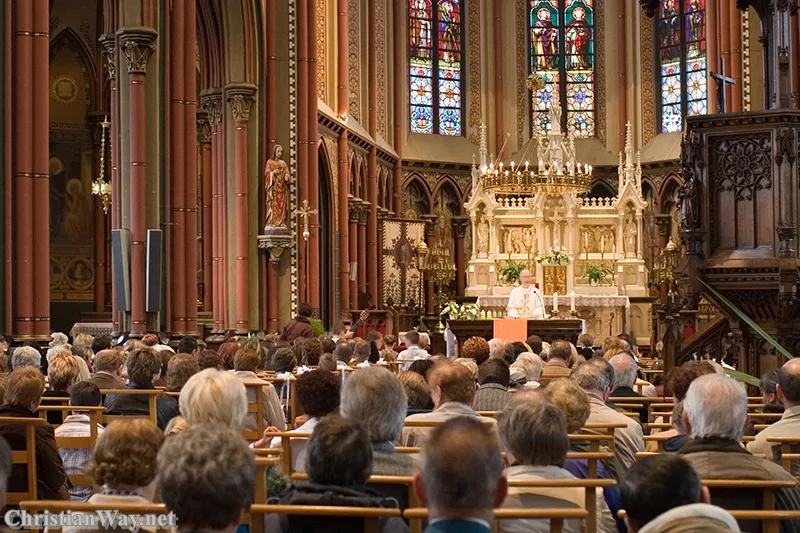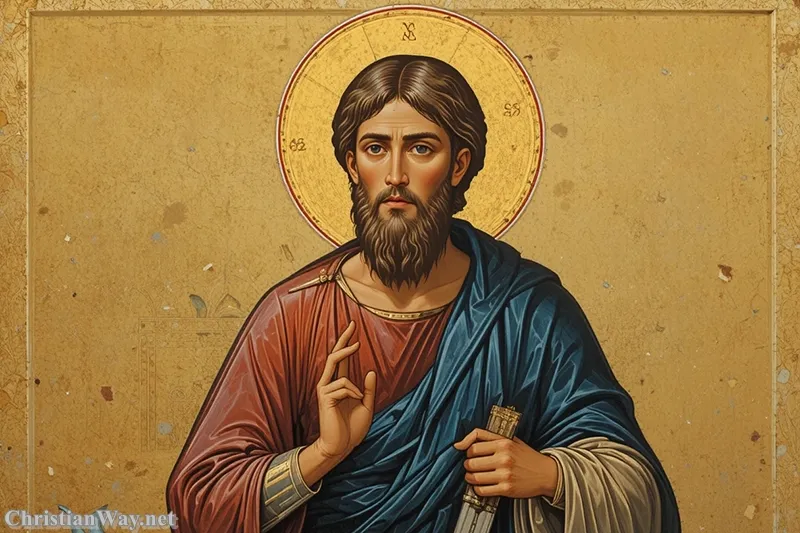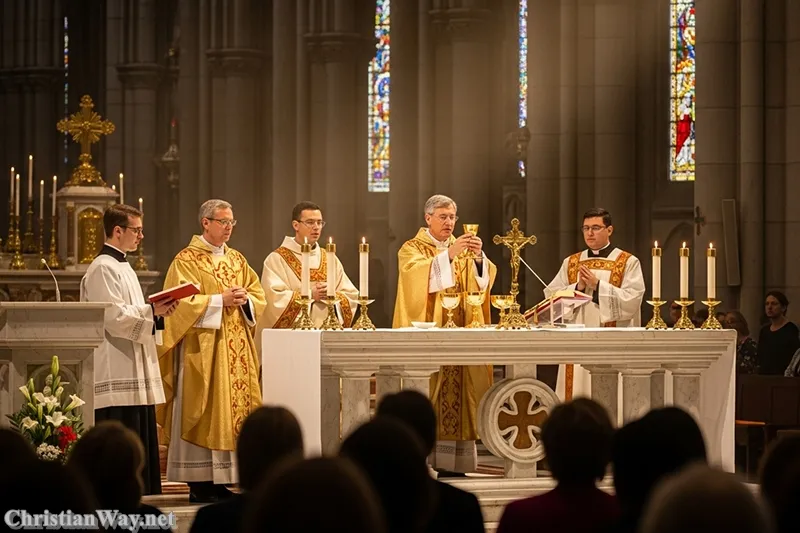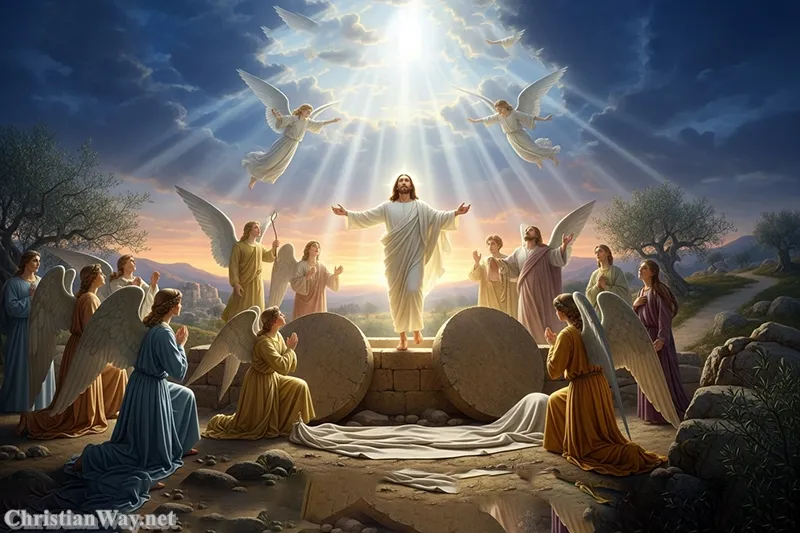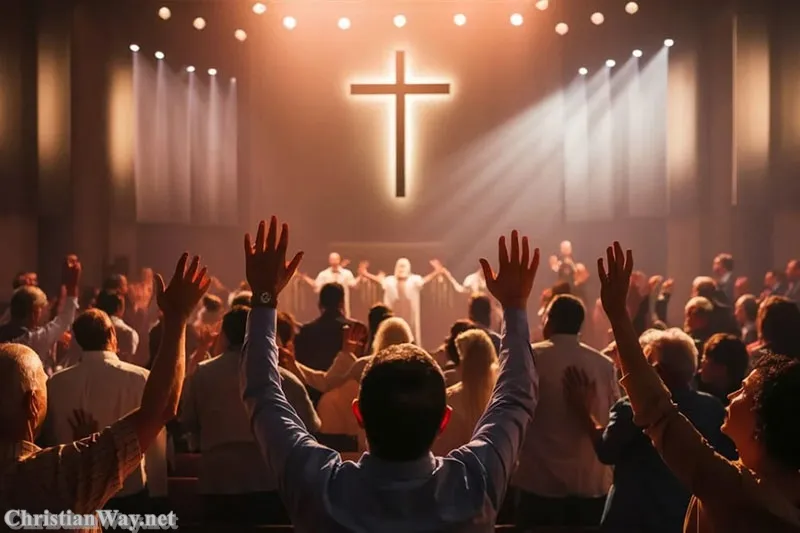Every human heart, at some point, feels the longing to be known — not merely understood from afar, but known in the depths of its being. In that yearning, hidden within all of creation, lies the echo of a greater mystery: God’s own desire to draw near, to make Himself known not through thunder or fire, but through a human face, a human voice, a human heart.
Dear friends in Christ, this is the heart of our faith — that the eternal Word, who was with God and who is God, became flesh and dwelt among us. This is not an idea or symbol, but a reality that has changed the course of history and the destiny of every soul. “And the Word became flesh and dwelt among us, full of grace and truth” (John 1:14).
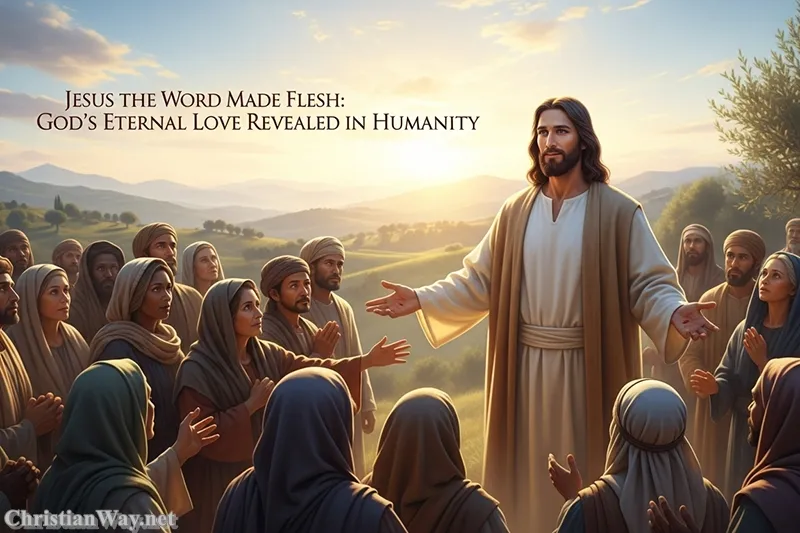
To speak of Jesus the Word made flesh is to enter the deepest mystery of love — the Incarnation — where heaven bowed down to earth, and God took upon Himself the vulnerability of our humanity, not as a disguise, but as a revelation of His very heart.
The Word Before Time
Before there was sound, before light pierced the void, there was the Word. Saint John opens his Gospel not with Bethlehem, but with eternity: “In the beginning was the Word, and the Word was with God, and the Word was God.”
This Word — Jesus Christ — is not a created being, but the very expression of God’s inner life. In Him, the Father speaks Himself completely. As the Fathers of the Church often said, the Word is to God what thought is to mind — the perfect self-expression, eternally begotten, not made.
The Logos and the Mystery of Meaning
The Greek word Logos means more than just “word.” It signifies reason, order, wisdom, and purpose. To say that Jesus is the Logos is to proclaim that all creation — from galaxies to the human soul — finds its coherence in Him. Everything was made through the Word, and without Him, nothing came to be (John 1:3).
Thus, every act of love, every truth discovered, every beauty glimpsed in this world is already an echo of the Word who holds all things together. When we encounter Christ, we are not meeting a mere prophet or teacher, but the eternal logic of love through whom the universe was spoken into being.
The Word Became Flesh
It is one thing to say that God spoke the world into existence; it is another to say that He Himself entered that world.
The Humility of the Incarnation
In Bethlehem, the infinite became an infant. The Creator of the stars was laid in a manger. The Word who formed the human tongue now cried with human lips. This is the divine humility — that the Almighty would choose to express His glory not through power, but through weakness; not through dominance, but through love that stoops to serve.
The Incarnation is not a temporary descent or a costume worn by God; it is His full self-giving. Saint Athanasius wrote: “He became what we are, that He might make us what He is.” In taking on flesh, God sanctified human nature itself, lifting it from within, making it the very instrument of our redemption.
God Dwelling Among Us
The phrase “dwelt among us” literally means “pitched His tent among us.” Just as God’s glory once filled the tabernacle in the wilderness, so now His presence fills human life in the person of Jesus Christ. In Him, the divine and human meet perfectly — not mixed, not divided, but united.
Every gesture of Jesus — His touch upon the leper, His tears at Lazarus’s tomb, His laughter with children, His agony in the garden — reveals the fullness of God’s love expressed in human form. In Christ, heaven and earth embrace.
The Word Reveals the Father
To know Jesus is to know God. As He said to Philip, “Whoever has seen Me has seen the Father” (John 14:9).
The Face of the Invisible God
Through the Word made flesh, the invisible became visible. What had been spoken through prophets and signs now took on form and voice. No longer does humanity search for God in the clouds of mystery — He has shown us His face in Christ.
In His compassion for the sinner, we see the Father’s mercy. In His truth that liberates, we see the Father’s wisdom. In His willingness to suffer and forgive, we see the Father’s heart.
The Word That Interprets Human Suffering
Because the Word took flesh, suffering itself has been transformed. God did not remain untouched by pain — He entered it. The cross is the moment when the Word’s love was spoken most clearly, not in syllables, but in wounds.
On Calvary, the Word that formed the world allowed Himself to be broken by it — and by doing so, broke the power of death itself.
The Word That Speaks Still
Though centuries have passed, the Word continues to speak. Not only through Scripture, but through the living presence of Christ in His Church, in the sacraments, and in the hearts of believers.
The Word in Scripture
Every page of the Bible carries His breath. The Old Testament prepares for His coming; the New Testament proclaims His presence. When we read Scripture with faith, we do not merely recall history — we hear the living Word speaking to us today.
As Saint Jerome said, “Ignorance of Scripture is ignorance of Christ.” The Word that once walked the roads of Galilee now walks through the lines of Holy Scripture, calling us to follow Him anew.
The Word in the Eucharist
Nowhere is the Word made flesh more present than in the Holy Eucharist. What began in the womb of Mary is renewed at every altar, where the same Word becomes real under the appearance of bread and wine.
“This is My Body, given for you.” Here, the mystery of the Incarnation continues — the divine entering the physical, heaven touching earth, God feeding His people with Himself.
When we receive the Eucharist, we do not only remember the Word made flesh; we receive Him. He dwells within us, transforming our lives from the inside out.
The Word Made Flesh and the Dignity of Humanity
If God has taken on human flesh, then every human life bears a sacred dignity. The Incarnation affirms that our bodies, our emotions, our struggles, and our joys all matter to God.
The Sanctity of Life and Creation
To gaze upon Christ is to see the worth of every person — the unborn, the poor, the sick, the aged. In a world that often values productivity over personhood, the Word made flesh reminds us that every human being is loved infinitely, not for what they do, but for who they are in God’s sight.
The Incarnation also redeems creation itself. The physical world, often dismissed as secular or fallen, becomes a temple of divine glory. Water can cleanse; bread can feed; oil can heal — because God Himself entered material reality.
The Word and Our Vocation
Each Christian is called to become a living extension of the Incarnation — to let the Word take flesh in our own lives. When we forgive, when we serve, when we speak truth in love, the Word becomes visible again in our time.
The saints are living commentaries on the Word made flesh. They remind us that holiness is not an escape from humanity, but its perfection in grace.
The Word and the Mystery of Mary
No reflection on the Word made flesh is complete without the one through whom it came — the Blessed Virgin Mary.
The Fiat of Faith
When the angel announced God’s plan, Mary’s “yes” became the hinge of history. Her humble consent allowed the eternal Word to take on mortal form. She shows us that the Incarnation is not merely a divine act imposed from above, but a partnership of grace and human freedom.
The Mother of the Word
In her womb, the infinite was enclosed. In her arms, the Creator of all was held. Mary is the first tabernacle of the Word made flesh, the living temple of God’s presence. Her faith, purity, and love model how every believer can allow the Word to take root within their heart.
The Word That Transforms the World
The Incarnation is not an event locked in the past — it is the ongoing reality by which the world is renewed.
The Word and the Redemption of Time
Every moment of history, no matter how dark, is now open to divine light because the Word entered time. Christ stands at the center of human story — not as an idea, but as the living bridge between eternity and the present moment.
Wherever justice is done, mercy shown, truth spoken, or love endured, the Word continues His work. The Incarnation empowers us to believe that no place is too broken, no heart too lost for God’s presence to enter.
The Word and the Renewal of Creation
Saint Paul writes that all creation groans for redemption (Romans 8:22). In Christ, that redemption has begun. The Word who once took flesh in Mary now seeks to restore all things — not only souls, but the whole cosmos — to the harmony for which they were made.
Our faith, therefore, is not withdrawal from the world, but participation in God’s ongoing creation. As Christ took on flesh, so must His love take form in our compassion, our service, our art, our care for the earth, and our witness in society.
Reflect and Pray
To contemplate Jesus the Word made flesh is to stand before the heart of God revealed in human tenderness. In Him, we see the divine will not as distant or abstract, but as a love that has entered our story.
He is the Word who spoke creation into being, the Word who was born of Mary, the Word who died and rose again, and the Word who now speaks within us.
Let us, then, allow that Word to dwell richly in our hearts, to shape our thoughts, to purify our desires, and to guide our steps. Let our lives become living echoes of that divine voice which once sounded in Bethlehem and still resounds in the silence of every prayerful soul.
Prayer
Lord Jesus Christ, eternal Word of the Father, You took flesh to dwell among us and reveal the face of love. Speak again into our hearts; make us bearers of Your presence in this world. May every word we speak and every deed we do reflect Your truth and mercy. Amen.
— Fr. John Matthew, for Christian Way
